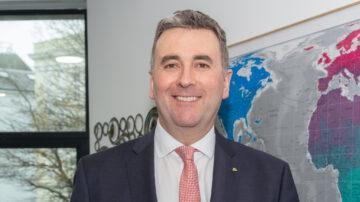Welcome to the first part of our series looking into ESG investing. Today, we take a look at what ESG investing is and why it is positive for both investors and the planet.
A noticeable shift in values has taken place globally as concerns increase regarding the continued exploitation of vulnerable communities and the rampant destruction of the environment. While there has been vocal support for a shift towards finding sustainable solutions among global communities, companies and governments have not always been as quick to enact change.
However, a failure to adapt to the consumer demand for ethical investment could leave some companies behind as they are overtaken by their more sustainable and ethical competitors.
Environmental, social and corporate governance (ESG) investing has become an opportunity for businesses to tap into the growing social demand for lasting change as well as the emerging ESG-related market. The resulting growth in environmental and ethical consciousness is leading both consumers and investors to demand that companies take these values into account.
Mark Lewis, the Chief Sustainability Strategist at BNP Paribas Asset Management, spoke at the 2021 Island Finance Forum. He stated last year, that “Depressed returns and volatility in oil markets will likely weigh on investor sentiment for the foreseeable future, thereby boosting the attractiveness of renewable energy projects offering lower-risk, longer-term visibility on the earnings of oil majors”.
What is ESG investing?
Ethical investing is when an individual decides to invest their money in a company that aligns with their views. For example, an individual could choose to not invest in companies that carry out animal testing or are tied to fossil fuel companies. This is what is called negative screening, where an investor avoids certain companies – and it is expected to become more prevalent.
Until quite recently, ethical investing was a time-consuming process where individuals had to conduct in-depth research themselves. However, due to the increasing demand for ethical investments, collections of ethical investments have been released which in theory should make buying combinations of ethical investments much simpler.
A 2020 report by the International Institute for Sustainable Development (IISD) noted that younger generations are not only more likely to invest their earnings than previous generations, but that they are savvier with their choices. The IISD describes how these young investors were more likely to fund sectors and entities they identify with – leading the think tank to predict high growth opportunities for companies embracing sustainability.
Investors can choose investment products that utilise ESG criteria from brokerage firms, mutual fund companies and Robo-advisors. ESG investing also incorporates positive screening. By choosing investment products that utilise ESG criteria, investors can be more confident that the companies they are investing in are having a positive impact. This is an additional factor than choosing not to invest in businesses that have negative business practices. It also means that investors can feel assured that they are helping to support businesses that they believe are ‘doing good’ in the world.
A positive bottom line for both investors and the planet
ESG investment funds are seeing massive growth and have huge long-term potential. For example, the report on US Sustainable and Impact Investing Trends 2020 (US SIF Foundation) using data tracked to the end of 2019, “found that investors are considering environmental, social and governance (ESG) factors across $17 trillion of professionally managed assets, a 42 per cent increase since 2018,” They go on to explain that this increase is set to grow, “This is a continuation of the significant growth in money managers and institutional investors that consider ESG factors to identify responsible, well-managed companies that will be resilient over the long term”.
US sustainable investment has had a compound annual growth rate of 14 per cent since 1995 when the US SIF Foundation began measuring it. The speed of this growth has increased most rapidly since 2012. Of the $51.4 trillion in total US assets under professional management, sustainable investing accounts for 33 per cent (US SIF Foundation, 2020). If this type of investment continues to follow this trend it is set to capture an ever-greater proportion of the US investment market. As its popularity rapidly grows, ideally so will its positive impact. This growth is certainly not consigned to the US though.
In BNP Paribas’s ESG Global Survey 2019 “about 75% of asset owners and 62% of asset managers surveyed allocated more than a quarter of their funds towards ESG, up from about 50% in 2017”. Regionally, Asia Pacific has been integrating ESG investments at the highest level. “55% of respondents from the region are looking to park at least half of their investments in funds incorporating ESG, compared to 49% globally” (ESG Global Survey 2019).
Additionally, the Global Sustainable Investment Review 2018 conducted by the Global Sustainable Investment Alliance (GSIA) states that the “sustainable investment market has continued to grow and evolve globally. While each region’s approach to sustainable investment is slightly different, some trends have had a global reach. Every region again saw a rise in ESG integration and sustainability themed investing”. The GSIA biennial reviews were started in 2012 and take into account regional sustainable investment data from Europe, the United States, Japan, Canada, and Australia and New Zealand.
Join us for part two of this series, when we will be looking at what ESG means for global islands and the importance of ESG investing.
You can catch-up with the Island Finance ESG forum here, featuring…
- Fiona Wilson, Senior Program Manager, Clinton Climate Initiative, Clinton Foundation (Moderator)
- Jackie Marati, Senior Vice President/Chief Communications and Corporate Social Responsibility Officer, Bank of Guam
- Mark Lewis, Chief Sustainability Strategist, BNP Paribas Asset Management
- Steve Weinstein, Chair, Bermuda Business Development Agency (BDA); Former Chief Legal Officer, RenaissanceRe Holdings Ltd; Chair, RenaissanceRe Risk Sciences Foundation
- Simone Hudson, CFA, AVP Alternatives and Fund Management
Special report by courtesy of James Ellsmoor at Island Innovation. Written by Simon Turkas
















